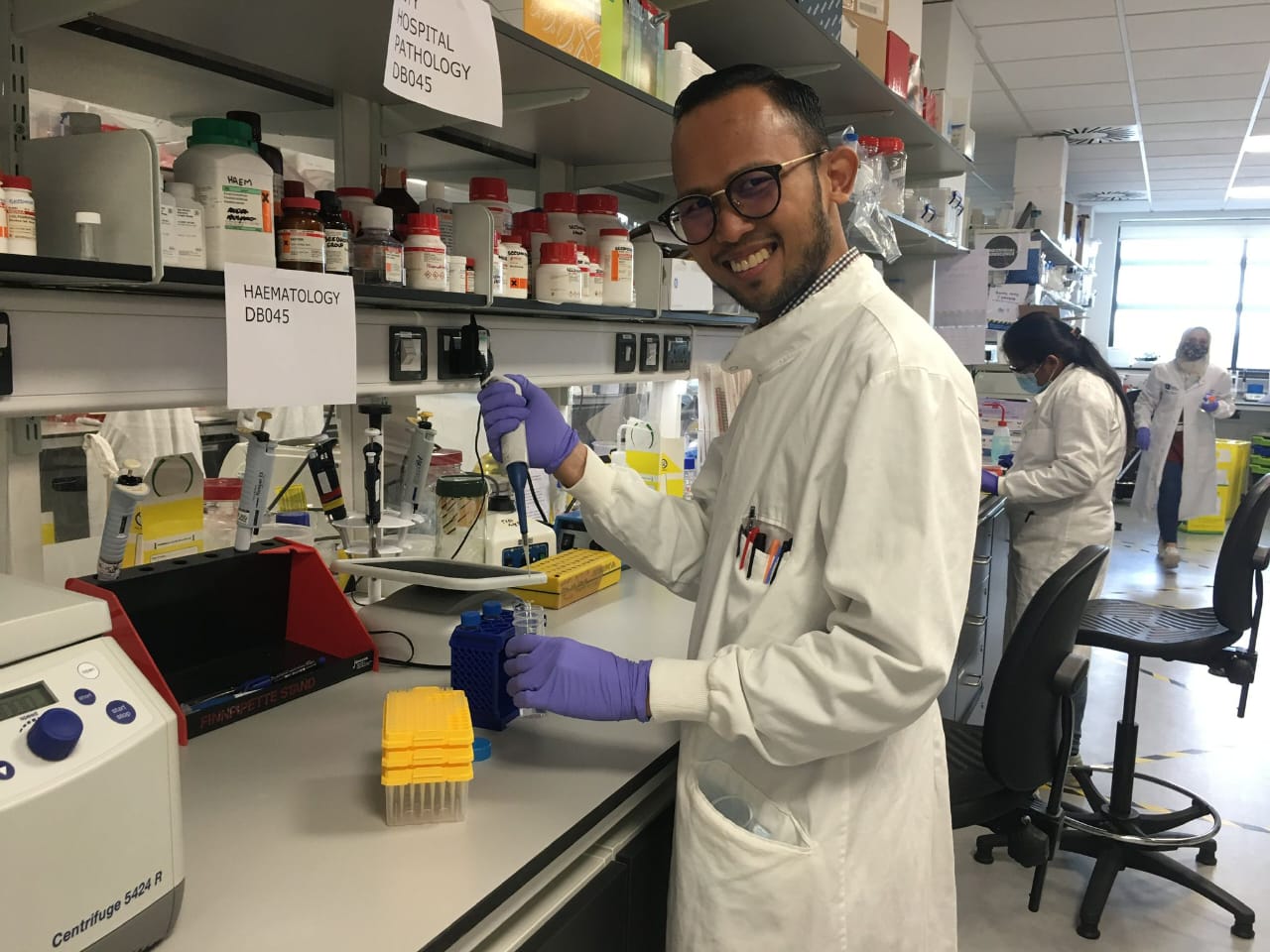As of today, the Ministry of Health of the Republic of Indonesia (Kemenkes RI) has reported a disease outbreak of measles in 12 provinces. The outbreak is determined if an area has at least two cases of measles that are confirmed by the examination of positive measles antibody serology and are related to epidemiology.
According to the Pediatrician, Faculty of Medicine, Universitas Indonesia—Cipto Mangunkusumo Hospital (FKUI—RSCM), dr. Mulya Rahma Karyanti, Sp.A(K), M.Sc., The measles outbreak that has been set is related to the complete basic immunization coverage for babies which has decreased dramatically during the Covid-19 pandemic. “This is due to parents’ concerns about bringing their children to health facilities because of their fear of Covid-19 spread. In addition, several health facilities providing vaccination were also restricted in their activities during the early pandemic,” said dr. Karyanti.
To be able to break the chain of transmission of measles, dr. Karyanti, who is also a Member of the National Verification Expert Committee on Measles Elimination and Rubella Control/Congenital Rubella Syndrome (CRS) added that immunization coverage of at least 95% is required. Previously, according to data from the Ministry of Health of Indonesia (2022), in 2020 and 2021 the coverage of complete basic immunization for children only reached 84%. The data shows that extraordinary cases of measles have occurred in children, most of whom have never been immunized.
“Immunization with the measles vaccine is the best way to prevent measles. High immunization coverage not only protects individuals who get the vaccine but can also protect people around them so that herd immunity is formed. Measles immunization is part of the government’s immunization program using the measles-rubella (MR) vaccine which can be given to children starting at the age of 9 months. In someone who has never received measles vaccination and is exposed to measles, giving measles vaccine within 72 hours after exposure can prevent measles from occurring,” said dr. Karyanti.
Dr. Karyanti added that measles was most often found in infants under one year old, adolescents, and adults who had not received adequate measles immunization. In addition, someone who has an impaired immune system (immunocompromised) due to a chronic disease or treatment that suppresses the immune system (long-term steroids, chemotherapy, or immunoglobulin) will also be susceptible to measles.

“Measles spreads through airborne transmission from someone who has measles from four days before symptoms to four days after the appearance of the rash. A person can get measles because they have not been protected by antibodies against measles that can be obtained from immunization. In someone who has received the measles vaccine, the body’s inadequate response to the vaccine (unable to form adequate antibodies to fight measles) and decreased immunity can cause a person to get measles,” said dr. Karyanti.
She added, when a person is infected with measles, there are symptoms of measles that are divided into three stages. First, the prodromal stage that is characterized by fever, cough, runny nose, painful swallowing, mouth sores, red eyes for 2-3 days, and diarrhea. Second, the eruption stage that is the appearance of a reddish rash on the hairline part behind the ears that spreads to the face, neck, and hands or feet for 5-6 days. Finally, the healing stage that is when the rash disappears in the order it occurs to become black and peeled, which will fade in 1-2 weeks.
Measles can be very dangerous if complications occur. dr. Karyanti said these complications are like encephalopathy/encephalitis (inflammation of the brain) which is characterized by seizures or decreased consciousness, bronchopneumonia (pneumonia) which is characterized by shortness of breath, enteritis (inflammation of the digestive tract) which is characterized by diarrhea to severe dehydration, and middle ear infections.
“The handling for measles is done supportively, such as having adequate fluid intake, nutritional supplements, and vitamin A. In cases with complications, antibiotics can be given if there is an indication of a secondary bacterial infection or requires hospitalization. A person who is exposed to measles transmits the measles virus very quickly through the air four days before to four days after the appearance of the rash, so it is necessary to do isolation either at home or at the hospital,” said dr. Karyanti.



